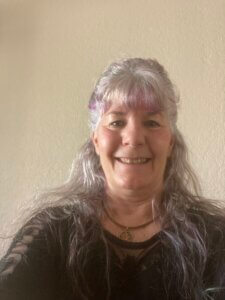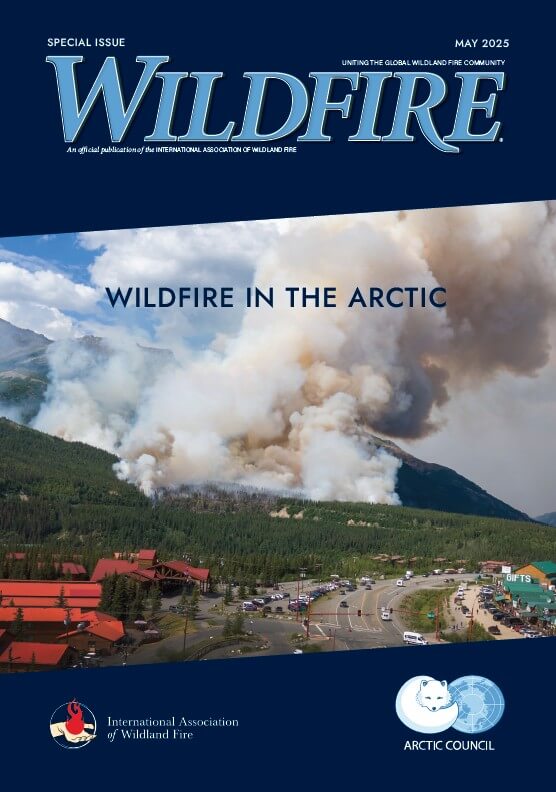RELATIONAL WELLNESS
NURTURING RELATIONSHIPS DURING WILDFIRE SEASON
BY BEQUI LIVINGSTON
All aspects of wellness are equally important to maintain balance. Relational wellness is often minimized but is so critical to our wellbeing.
Humans are hard-wired for connection; we need safe and healthy relationships. Yet, when stressed, such as during wildfire season, our closest relationships often take the hardest hit. Just look at the divorce rate in the wildland fire community, which is similar to that of combat veterans during wartime. Being in wildland fire can have an impact on our partners, children, families, friends and pets. It doesn’t have to be this way if we are aware and informed of simple strategies to help us navigate the challenges that come with working in wildland fire.
Do you have enough energy at the end of a fire assignment to give to those people (and pets) that are dearest to you, or do you return home after a hectic assignment not wanting to have meaningful conversations, feeling irritable, or reverting to maladaptive coping mechanisms? These signs might not show up until fire season is in full swing, as your body slowly adapts to the traumatic stress of one fire assignment after another. Our closest relationships are what matter most; those who will be waiting for us when the fires go out and we return home – spouses, partners, children, parents, friends, family, siblings, pets and coworkers who support us and help us find our footing. These precious relationships need to be nurtured before, during and after wildfire season.
I met my husband Ron during a wildfire in Colorado in the summer of 1988. I was on the Smokey Bear Hotshot crew and assigned as the division helispot manager while Ron, a Vietnam veteran combat helicopter pilot, was flying and supporting our division. After getting married I resigned to help Ron run our helicopter business and raise our children. I came back to work in 1995, on the Sandia Ranger District, outside Albuquerque, New Mexico, eventually becoming the district assistant fire management officer. By then, Ron had sold the helicopter business and began working for the Federal Aviation Administration, which required lots of travel.
We were a dual-career couple, requiring a lot of balance and honest communication to make our relationship work, especially as parents. Luckily, Ron knew the wildfire business, and all that came with it. I knew when I accepted the job that my family would always come first, and I had amazing bosses who were supportive, as they too were parents. However, it didn’t come easy and took a lot of dedicated effort between my husband and me to make things work. I learned that our closest relationships are the most precious thing, and family should always come first. In fact, there were many times that we would get a wildfire call right at quitting time, and I had to turn it over to someone else because I had to pick up my kids from childcare when Ron was traveling. I didn’t designate someone else to pick them up, because, as a mother, that was my priority, and I wanted to make sure that wildfires never interfered with my family.
It wasn’t easy, but with lots of communication and some useful tools (listed below), we’ve made it work for 36 years. We learned ways to prioritize and manage our relationship, and although I was lucky to have a spouse who understood wildland fire, others are not so lucky. My son was a wildland firefighter for several years, and his girlfriend, (who is now his wife) was always afraid and uncertain of what to expect. That truly opened my eyes to what other partners and family members go through during fire season. It’s such a hard job to understand, especially for our most cherished relationships – for good reason: they are afraid of what might happen to their loved one. Crazily enough, our four adult children are now first responders, and one is a former combat veteran helicopter pilot, so these tools are essential for their partners and families.
To maintain healthy relationships as a wildland firefighter, it’s critical to practice some essential skills. Remember that your loved ones are equal partners in your wildland world, often experiencing stress and trauma much like your, even if they aren’t on the fireline.
Prioritize open and honest communication.
Learn how to talk openly, and honestly about your feelings and experiences, including the difficult situations, and be willing to listen to your partner’s concerns, without judgement. Talk openly about any issues you may both be experiencing, using “I” statements, for example, “I feel ________ when __________ because ________”. Never place blame on each other, rather speak about your experience. If you’re still hyped up on the stress of work, take time to calm down, gather your thoughts and breathe before having a conversation.
Engage in active listening to your partner.
Be fully present and pay close attention to what your partner says, validating their feelings without minimizing, interrupting, or becoming defensive. The key aspects to healthy communication are feeling safe and feeling heard without shame or judgement.
Maintain flexibility with schedules.
This is important for any situation but especially for dual-career couples, to understand that wildland fire work schedules and travel demands can be very unpredictable, especially during fire season. Have a contingency plan that covers all the bases, especially if you have younger children.
Understand the emotional impact of the job.
This is really important due to the stressful aspect of the job and to the families left at home. It’s nice to have a safe space to decompress after a fire assignment or stressful shift to unwind and let your nervous system
settle before re-engaging with family, friends and work. It’s important to provide time to talk to your partner and family about any emotional impacts or concerns they may be experiencing. Most importantly, if you find
yourself, or loved ones in an emotional crisis, or in need of support; reach out for help.
Set clear expectations.
Discuss your needs and boundaries regarding worklife balance and time together, especially during fire season. It’s OK to say no and ask for what you need, as well as what you don’t need.
Practice self-care.
This is a priority. Like the flight attendant always reminds us in the safety briefings, always put your oxygen mask on before helping others. It’s OK, and actually quite brave to do things that make you feel good and help you relax – simple things like getting a massage, taking a walk in nature, fishing, or enjoying music can help make you a better partner and parent.
Prioritize quality time together.
Make a conscious effort to schedule time as a couple or family to connect without the stress of the job. Work will always be there, but your kids will grow up and leave the house before you know it.
As my good friend and I used to tell firefighters while teaching our workshops, there are no do-overs or go-backs in life, especially when you have a family.
We typically have one chance in our relationships to do the right thing, the right way. Wildland fire is a rigorous occupation, often taking us away from those we love, while missing out on important milestones.
We always have a choice to do the right thing in all our relationships.
 Bequi Livingston was the first woman recruited by the New Mexico-based Smokey Bear Hotshots for its elite wildland firefighting
Bequi Livingston was the first woman recruited by the New Mexico-based Smokey Bear Hotshots for its elite wildland firefighting
crew. Livingston was the regional wildfire operations health and safety specialist for the U.S. Forest Service in Albuquerque, New Mexico.
Contact her at [email protected]
